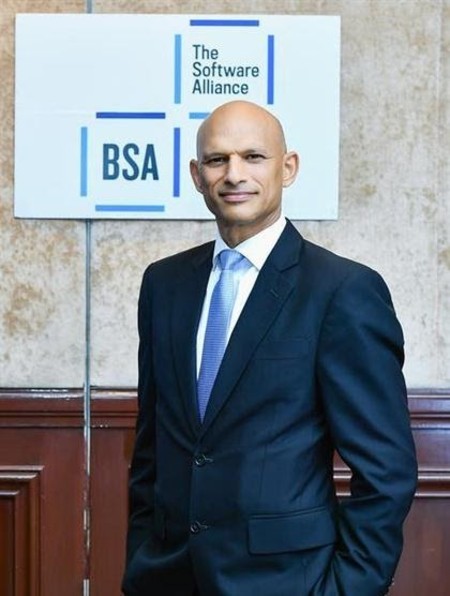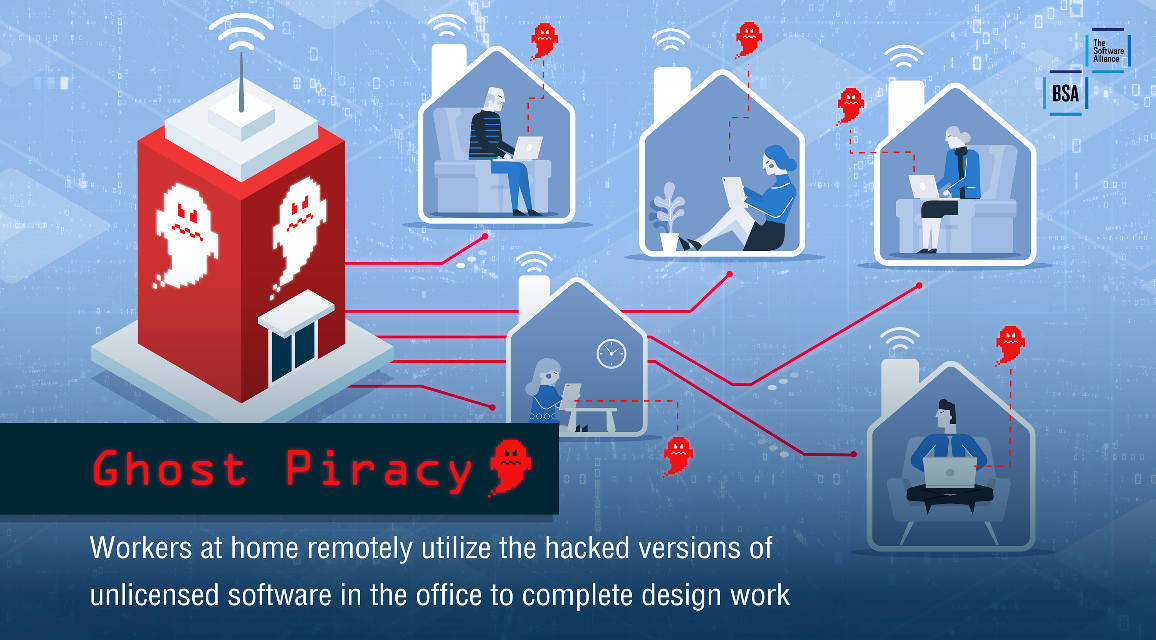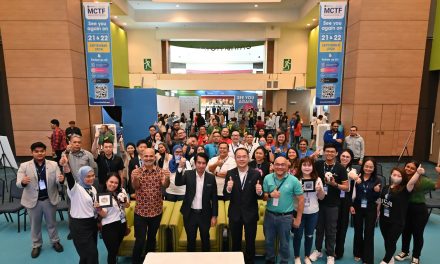Remote working during the pandemic has not put the brakes on the use of unlicensed software in Malaysia and across the region. On the contrary, BSA | The Software Alliance has found that businesses are using technology to allow employees to remotely access unlicensed software from the office while working from home. The act of remotely accessing unlicenced software, described as “ghost piracy”, is said to be taking place among design, creative, animation and engineering professionals in Indonesia, Malaysia, the Philippines, and Vietnam, to name a few.
Earlier this month, the Enforcement Division of Malaysia’s Ministry of Domestic Trade and Consumer Affairs (MDTCA) conducted its ninth raid targeting ghost piracy. This includes raids conducted on an interior design firm and a design and build company in Kedah. Raids were also conducted against companies in the manufacturing, precision engineering and construction industries. A total value of about RM657,975 (US$150,000) in unlicensed software, including V-Ray, a 3D rendering software for computer graphics were found installed during these raids.
Enforcement officers also discovered that a majority of the computers belonging to interns attached to these businesses were found to have unlicensed software.
On the heels of the enforcement action by Malaysian authorities, this week the Economic and Cyber Crime police officers in Thailand also reported raiding an animation studio in Bangkok, which was creating entertainment content for a global streaming platform. The raid was the result of a tip from an employee who reported the company to BSA.
During the execution of a search warrant for violation of software copyright law, authorities witnessed workers at home using remote access and remote-control computer software to access the hacked versions of unlicensed software. The company had 20 computers in the office, 15 of which contained unlicensed Autodesk Maya programs, being used for movie and animation special effects. Total value of the unlicensed software was nearly US$200,000.
“To the detriment of cyber security and rule of law, we believe companies have found ways to access illegal software even during remote work,” said BSA Senior Director, Tarun Sawney.

In Malaysia, the Copyright Act 1987 stipulates that only licensed and legal software can be used in a business environment. Violation of the law would mean that the company and its management are liable to be fined anywhere between RM2,000 and RM20,000 for each illegal copy of software. Additionally, business leaders may also be imprisoned for up to five years.
Over the years, BSA has undertaken awareness-raising and enforcement programmes with MDTCA to promote the use of legal computer software, especially as Malaysia has an unlicensed software rate of 51%.
With the onset of the pandemic, BSA enforcement programmes focused on protection of software intellectual property rights slowed in 2020 and 2021. Now, with ghost piracy making the news, BSA is ramping up collaborations with governments in the region – organising discussions to address potential cases of ghost piracy, along with general compliance of software intellectual property law and cyber-crime.
“As an organisation, we are actively working with governments in the region to ensure greater levels of software compliance. Unlicensed software is neither secure nor stable – and should not be used by businesses. No creator can come up with quality design using illegal software and when these designs are for the roads, bridges, rail lines and infrastructure then companies are also taking great risk,” says Sawney.
With engineering and construction firms among the companies most frequently reported found flouting the law, Sawney says, this should be of particular interest to government agencies that procure their services for infrastructure and national development projects.
“Governments in Southeast Asia want the firms building national infrastructure to use the safest, most productive and most secure software available – and it’s a fact that unlicensed software is a major risk,” he says. “There should be no tolerance for firms using any illegal software in national development. These are substantial businesses winning lucrative contracts. Shortcuts using cracked software should never be accepted nor allowed.”












